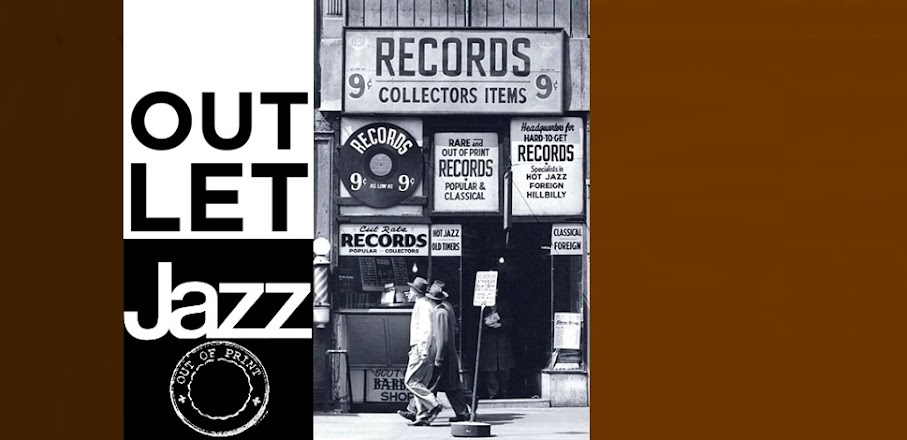Art Farmer
Modern Art
The young jazz musician — if he is at all serious about making his self-expression a vocation with meaning to others beside himself — has to learn a lot.
He must first, of course, know his horn, know it until, to paraphrase Yeats, it's difficult to tell where the musician ends and the horn begins. He must battle the problems of technique until his fingers execute what he thinks as he thinks, no matter how challenging or difficult the thought. And to stay fed in contemporary music, the young jazzman will be confronted with a greater variety of challenges than all of King Arthur's court dreamt of.
He must be able to read — not only precise commercial arrangements for diverse record dates but the new and unexpected turns of the growing number of modern jazz writers.
He must, unless he limits himself to only one idiom and one familiar group of players, be able to improvise over a wide and sometimes dizzying range of conditions.
When — and if — he has mastered all this, his basic problem begins. He must find himself, must be — relatively — "original." Once he has achieved enough skill to be noticed at all, the critics are likely to start calling him 'electric' or 'derivative'; other hornmen respect him but wait to hear what he's doing that they haven't heard before; and most important of all, he himself becomes intensely concerned about releasing and developing his own "voice." It's at this point that the good, skillful players become separated from the others who go beyond proficiency to become the major stylists, the musicians who influence other musicians.
Art Farmer, after a long apprenticeship, has matured into one of the few trumpet players of his generation who is individual and who indicates a capacity for growth that will also make him an influence. Through the years, Art has sharpened his technique so that he can — and has — handled all manner of assignments from the funky, driving, soul-flexing of the Horace Silver Quintet through the polyphonic play of the Gerry Mulligan quartet to jagged experimental scores at Brandeis University, Carnegie Hall and Cooper Union.
While absorbing all this experience — and much more — Art has consistently enlarged and strengthened his own musical personality until he now cannot be accurately categorized as a member of any "school" but his own. In addition to a tone that he has deepened and burnished through the years, his conception has become a direct reflection of himself. Like the man, it is thoughtful; lyrical unto — at times — a brooding introspectiveness; intensely emotional; and devoid of superfluity. *Nat Hentoff (from the liner notes)*
Here, through eight tracks covering two sides of an LP, is a set that must rank among the finest, most musical, most stimulating, and most satisfying of the year.
Three Down Beat new stars — Farmer, Golson, and Evans — literally shine with a creative brilliance that, at times, is just unbelievable. I found, too, that this quintet greets a ballad not as something to be bulled through or played with, but as a vehicle for lyrical expression. In fact, if there is one word which sums up this LP it could well be "lyrical."
Some tracks are simply beautiful. Farmer, Golson, and Evans play with warmth and deep feeling on Darn That Dream, The Touch of Your Lips, and Like Someone in Love. Every track has some superlative playing, but I found that these were extraordinary. Perhaps because the tunes are ballads and are treated as such. When jazzmen can make their horns sing as these men do, it is a rare and moving experience in jazz. The older generation of players could do it, and very well. Some of our generation can, but mostly they tend to fall into devices or tricks with time to get through the tune.
Hear, for instance, the lovely muted fills Art blows behind Golson's soulful, melodic playing of Someone in Love, then Farmer's flowing muted solo, and Benny's Hawk-like coda.
Farmer has been maturing steadily as a musician. He is interested in music and in learning. He absorbs and builds on what he has absorbed, rather than parroting it back because it happens to be hip or in the current idiom. I feel, on the basis of his performance here and of in-person hearings lately, that he is certainly one of the very few young players today who will have a great deal to do with molding the future of jazz. The often abused phrase, a major talent, must be applied to this man.
Golson, too, has come along handsomely in the last year or so. His one written contribution here, Fair Weather, is another of those melodic, oddly nostalgic themes which he creates so well. His playing is imaginative and bright, and he turns what could be a hip phrase into something quite fresh almost as a matter of course.
Evans, yet another increasingly important jazzman, displays again the workings of a creative mind. Note his solos on Weather, Breeze, and I Love You.
Addison Farmer and Dave Bailey give the soloists firm and pulsing support. Bailey, as usual, is tasteful and affirmative in his work.
The stereo version just brings more life into this excellent performance. Don’t miss this one.
*Dom Cerulli (Down Beat, January 8, 1959 [5 stars])*
1 - Mox Nix
(Art Farmer)
2 - Fair Weather
(Benny Golson)
3 - Darn That Dream
(James Van Heusen, Eddie DeLange)
4 - The Touch Of Your Lips
(Ray Noble)
5 - Jubilation
(Junior Mance)
6 - Like Someone In Love
(James Van Heusen, Johnny Burke)
7 - I Love You
(Cole Porter)
8 - Cold Breeze
(Wade Legge)
Art Farmer (trumpet), Benny Golson (tenor sax),
Bill Evans (piano), Addison Farmer (bass), Dave Bailey (drums).
Recorded at Nola's Penthouse, New York City, September 10, 11 and 14,1958


https://1fichier.com/?7xiftw5zgwlbffyj5iy3
ReplyDelete